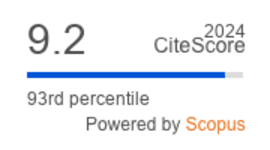Update on Remdesivir in the Treatment of Novel Coronavirus Pneumonia
DOI:
https://doi.org/10.36877/pmmb.a0000341Abstract
Worldwide epidemic prevention and control remain under significant stress due to the global novel coronavirus disease 2019 (COVID-19) pandemic and the ongoing emergence of variants like Omicron. The total confirmed COVID-19 cases globally as of now topped 620 million, while the total number of fatalities exceeded 6.6 million. The screening, drug discovery, and clinical development of novel treatments are still the hottest subjects in the treatment of COVID-19, and scientists throughout the world are dedicated to identifying prospective therapeutic agents to treat COVID-19 patients, including the new uses of old medications. Remdesivir, a COVID-19 therapeutic medication developed by Gilead Sciences, exerts antiviral effects by suppressing the RNA-dependent RNA polymerase of severe acute respiratory syndrome coronavirus 2 (SARS-CoV-2). Remdesivir has maintained high inhibitory activity against all existing SARS-CoV-2 variants, including the Omicron variant. We systematically retrieved Web of Science, CNKI, PubMed, and Clinicaltrials.gov to gather information related to Remdesivir on COVID-19 treatment. In this review, we summarized and reviewed the drug targets for COVID-19 management, especially the mechanism of action and research progress of Remdesivir. More importantly, the outcome of current clinical trials of Remdesivir alone and when combined with other drugs for COVID-19 management was analyzed, and the limitations and clinical significance of each clinical trial were evaluated. From this review, we can understand the development progress of Remdesivir for COVID-19 management, deepens the current understanding of Remdesivir research status, and gives us some inspiration for better drug use in COVID-19 management.
Downloads
Published
How to Cite
Issue
Section
License
Copyright (c) 2023 Huang Feng, K. Lakshmi, Chin Tat Ng, Murthy Sasikumar, Masita Arip, Masriana Hassan, Voon Kin Chin, Mogana Rajagopal, Omotayo Fatokun, N. Parvathi, Malarvili Selvaraja

This work is licensed under a Creative Commons Attribution-NonCommercial 4.0 International License.
Author(s) shall retain the copyright of their work and grant the Journal/Publisher right for the first publication with the work simultaneously licensed under:
Creative Commons Attribution-NonCommercial 4.0 International (CC BY-NC 4.0). This license allows for the copying, distribution and transmission of the work, provided the correct attribution of the original creator is stated. Adaptation and remixing are also permitted.

This broad license intends to facilitate free access to, as well as the unrestricted reuse of, original works of all types for non-commercial purposes.
The author(s) permits HH Publisher to publish this article that has not been submitted elsewhere.



.png)

.jpg)
